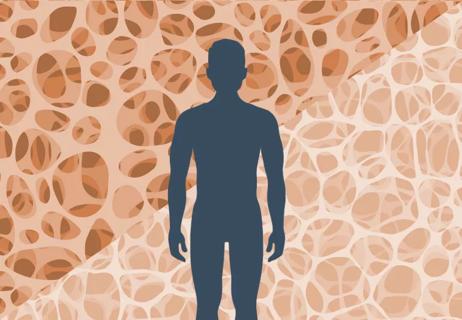Some osteoporosis medications help slow bone breakdown, while others help grow new bone — what’s best for you depends on your needs

Having osteoporosis can put you at risk for fractures. And that’s a road you don’t want to go down if you can avoid it.
Advertisement
Cleveland Clinic is a non-profit academic medical center. Advertising on our site helps support our mission. We do not endorse non-Cleveland Clinic products or services. Policy
But what medications can help manage osteoporosis? And what can you expect from them? Rheumatologist Linda Mileti, MD, shares what you need to know about osteoporosis medications.
There’s no one osteoporosis medication that’s best for everyone. What your provider ultimately recommends will be based on choosing what’s likely to work best for your needs. That includes considering factors like your bone density and whether you’ve had a history of conditions like:
Things like vitamin D and calcium supplements may be enough if you have osteopenia, a warning sign that you may be on your way to osteoporosis. But if you cross the threshold to osteoporosis, it’s time for prescription medication. Dr. Mileti shares which medications may be recommended and why.
Bisphosphonates are some of the most common osteoporosis medicines. They’re a class of osteoporosis medications that are called “anti-resorptives.” They help slow the breakdown of bone in your body.
“Our bodies constantly break down and rebuild bone. That’s normal and healthy,” Dr. Mileti explains. “But when you have osteoporosis, you can start breaking down more than you rebuild.”
Advertisement
Some of the most common oral bisphosphates include alendronate (Fosamax®) and risedronate (Actonel®). Zoledronic acid is a common IV (intravenous) bisphosphonate. It goes by the brand names Reclast® and Zometa®.
Pros
Cons
Denosumab is a type of injectable medication for osteoporosis. It’s given every six months.
Like bisphosphonates, denosumab is an anti-resorptive medication — it works to slow bone breakdown.
Pros
Cons
Advertisement
Parathyroid hormone analogs are in a class of medications called anabolic agents.
Here’s what makes them different.
While bisphosphonates and denosumab work to slow down the process of bone breakdown, anabolic agents work on the other side of the coin. They help to build new bone.
PTH analogs like teriparatide (Forteo®) and abaloparatide (Tymlos®) are synthetic versions of parathyroid hormone. That’s a hormone that helps to control calcium in your body. More parathyroid hormone means more calcium, which means more bone-building power.
PTH analogs are injection medications that you give yourself once a day. Most people take these medications for two or three years.
Pros
Cons
Advertisement
Romosozumab is another kind of anabolic agent. Like PTH analogs, it helps build bone. It’s one of the newest osteoporosis medications to hit the market.
Pros
Cons
In the past, hormone replacement therapy was a common treatment for osteoporosis for postmenopausal women. But as we’ve learned more about HRT and targeted osteoporosis medications have become available, it hasn’t been used as much for osteoporosis.
Pros
Advertisement
Cons
Even with the osteoporosis medications available, a healthy lifestyle is still an important factor to keep your bones strong.
Dr. Mileti stresses the importance of exercise, specifically weight-bearing exercise.
“Your bones need the compressive force from walking and standing,” she adds. “That’s why astronauts can get osteoporosis — they don’t have gravity pressing on their bones.”
Aim for exercises that encourage you to stand, like
Talk with your healthcare provider to find the right exercise program to strengthen your bones to get the most benefit from your osteoporosis treatment.

Sign up for our Health Essentials emails for expert guidance on nutrition, fitness, sleep, skin care and more.
Learn more about our editorial process.
Advertisement

It’s best to aim for calcium-rich foods instead of turning to supplements

Eating enough dairy, fish and leafy greens is a good way to help keep your bones strong

The right exercises can protect you from future fractures

Diseases, other factors can increase men's risk

Estrogen loss contributes to bone loss, which significantly raises your risk of osteopenia and osteoporosis

Your tolerance decreases with age, thanks to body changes, health conditions and medications you may take

Exercising and stretching your lower back, hamstrings, hips and quads can greatly improve your physical well-being

Many chronic conditions can cause fatigue — but don’t overlook mental health concerns, iron level and hormones

Even small moments of time outdoors can help reduce stress, boost mood and restore a sense of calm

A correct prescription helps your eyes see clearly — but as natural changes occur, you may need stronger or different eyeglasses

Both are medical emergencies, but they are very distinct events with different causes